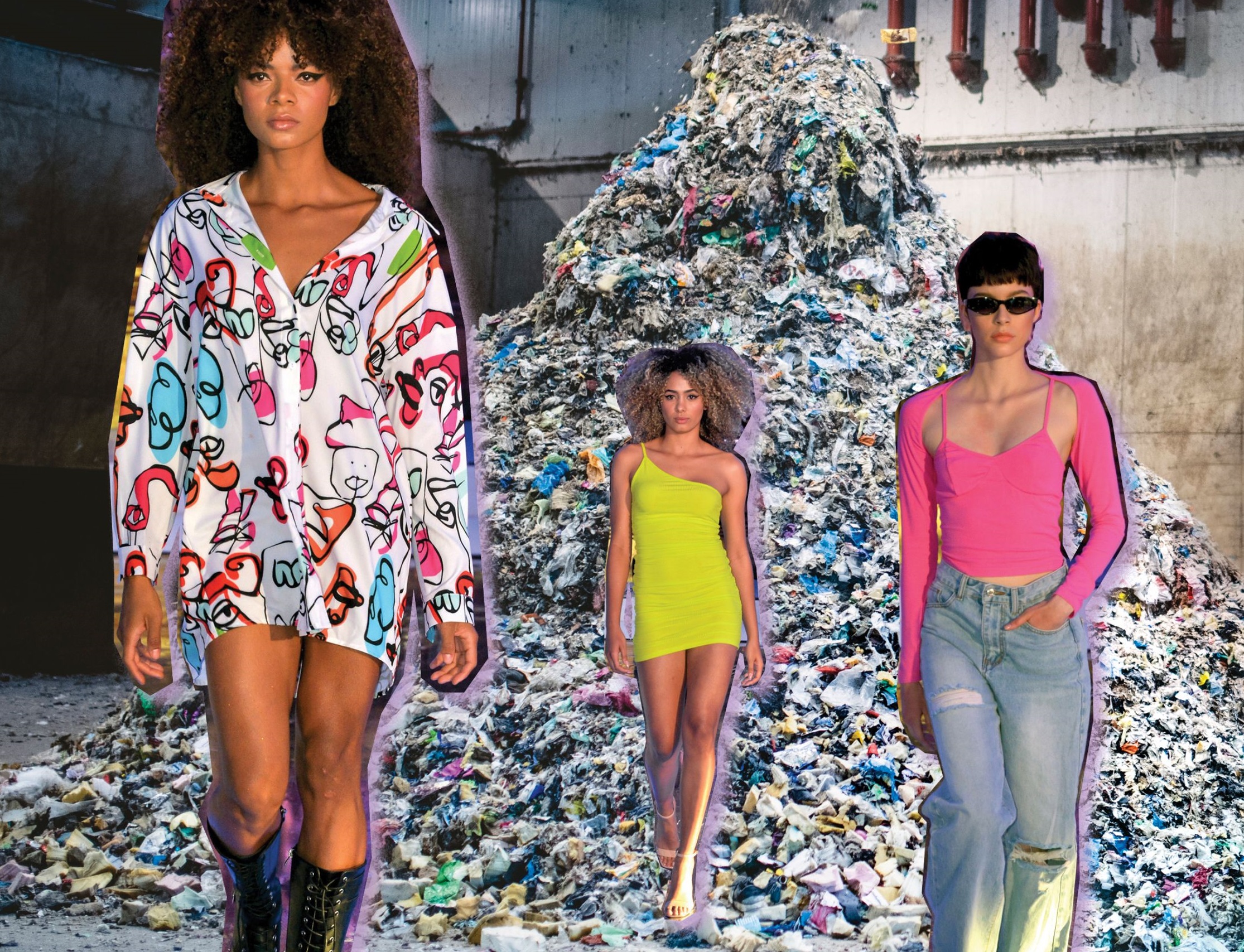Shein has emerged as a prominent online fast fashion retailer, captivating young consumers with its affordable prices and trendy clothing options. However, as the brand gains popularity, concerns about its manufacturing practices and greenwashing tactics have also come to light. One particular aspect that raises eyebrows is the company’s collaboration with influencers, which serves as a powerful tool for greenwashing its image and diverting attention from the harmful environmental and labour practices associated with its factories.
In recent news, a number of TikTok influencers were shamed and called out for “selling out” to Shein. In the sponsored videos, influencers can be seen touring a Shein factory and blatantly reading a commercial script filled with lies and misinformation.
This article delves into the complex relationship between influencers and Shein greenwashing, exploring the consequences of their collaboration and the impact on consumer trust.
Sponsorship Money Talks
Influencers have become coveted marketing assets for brands, and Shein is no exception. With their substantial social media followings and the ability to influence consumer behaviour, influencers are approached by Shein for partnerships. In exchange for free merchandise, financial incentives, or exclusive discount codes, influencers promote Shein’s products on their platforms, effectively becoming brand ambassadors. This symbiotic relationship allows influencers to monetize their content and gain exposure, while Shein capitalizes on their influence to reach a broader audience.
@funmiford #greenscreenvideo And we wonder why the word influencer is a pejorative. When money is THE motivating factor of your influencing career, brands can buy you a plane ticket and youll sing like a canary. Shein has so many problematic issues including this propoganda tour. It reminds me of the Hunger Games when they sent the winners on a press tour to help make the Capital look good to quelch uprisings. Creators, dont make brand partnerships your bread and butter because you will debase yourself for any crumbs they give you and sell your integrity for a plane ticket and hotel room. Be blessed #shein #influencertips #contentcreatortips #sheinbrandtrip ♬ Next Lifetime – Instrumental – Erykah Badu
The Greenwashing Game
Shein greenwashing has been perfected like an art, with vague sustainability claims and selective messaging to create an eco-friendly image. This strategy is further bolstered through collaborations with influencers, who present Shein as a socially and environmentally responsible brand. Influencers curate aesthetically pleasing content featuring Shein products, accompanied by captions highlighting the brand’s supposed commitment to sustainability. By associating themselves with influencers, Shein successfully masks its exploitative manufacturing practices and capitalizes on the trust influencers have built with their followers.
@johnapabon #stitch with @Melissa The recent Shein influencer tour is a total greenwashing stunt! I lived and worked in China for a decade, mostly inside factories, and nothing they’ve shown is innovative. It’s been the standard for at least 15 years. @Danidmc #sheinisbad #greenwashing #fastfashionsucks #prstunt #danidmcsheinfactor ♬ original sound – Sustainability made simple
Ethics vs. Profits
The ethical dilemma arises when influencers prioritize financial gains over the consequences of endorsing a brand like Shein. While it is tempting for influencers to accept lucrative partnerships, they must carefully consider the impact of their actions on their audience and the environment. By promoting Shein, influencers indirectly endorse a brand known for its fast fashion model, which perpetuates unsustainable consumption, labour exploitation, and environmental degradation. This compromises the credibility and authenticity that influencers strive to maintain with their followers.
@sipteawithmelissa Honestly couldn’t not comment on this today 😒😒😒 #popculturecommentary #popculturenews #celebnewstiktok #celebnews #insidethesheinmachine #fastfashionsucks #fastfashionisntcute ♬ original sound – Melissa
Betraying Consumer Trust
Influencers hold a position of influence and authority, and their audience often looks to them for guidance and inspiration. By endorsing Shein greenwashing, influencers risk betraying the trust their followers have placed in them. When influencers promote a brand engaged in greenwashing, they inadvertently contribute to the normalization of unethical practices and undermine the collective efforts toward sustainability. This not only erodes consumer trust but also hampers the progress made by ethical and sustainable brands.
@catiestrig Feeling very spicy this morning. I do wonder if influencers think beyond a paycheck. We all know very few corporations are ethical. No such thing as ethical consumption under capitalism. But #shein is one if the worst. I would never willingly create propoganda for them while denying the literal proof of their unethical practices as “rumours”. In the height of the pandemic I found Shein for the first time, Ill admit I ordered from then. Once I took a moment to pause and thing about the why and what- why their clothes could be so cheap, what environmental impact they create and what part I played in supporting them- I stopped. And no their weird attempt at #greenwashing doesnt change that. Ill share some articles below in the comments #danidmc #environmentallyfriendly #greenscreenvideo ♬ original sound – Catie
Responsible Influencer Practices
As influencers, it is crucial to uphold ethical standards and promote brands that align with one’s values. By conducting thorough research and due diligence, influencers can ensure they collaborate with brands committed to genuine sustainability practices. Transparent communication with followers about the complexities of influencer-brand relationships is also essential. This way, influencers can foster open discussions about the impacts of fast fashion and the importance of conscious consumer choices.
@emmyypetit #stitch with @Melissa Influencers, every brand trip + every brand check isn’t worth it #shein #influencertips ♬ original sound – emmyypetit | midsize fashion ✨
Empowering Change
Influencers possess a unique platform that can be leveraged to enact positive change in the fashion industry. By aligning with sustainable brands, highlighting ethical alternatives, and raising awareness about the dark realities of fast fashion, influencers can empower their audience to make more conscious purchasing decisions. Moreover, they can use their influence to call out greenwashing practices and encourage brands to adopt genuine sustainability measures.






